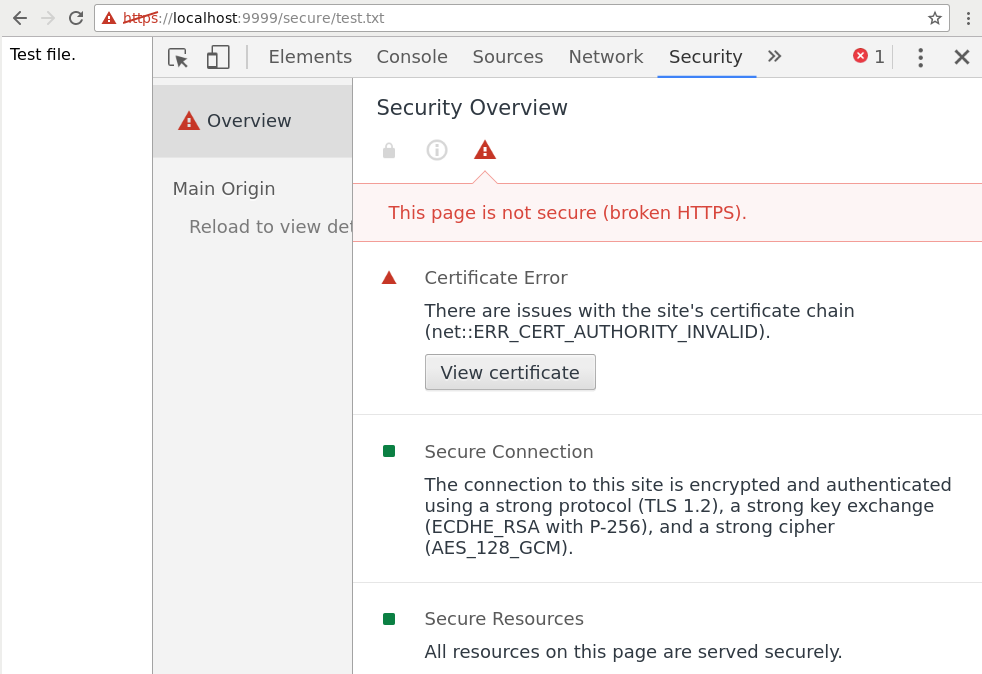Ecc Key Generation In Java
The author sends both public key and the signature with the document. Java.security package contains ECDSA classes for generating key pair, signing and verifying signatures. There are other third-party libraries like Bouncy Castle. But for this example, we will use the standard libraries provided since Java 7. Generate Key Pair. This chapter introduced the new Elliptic Curve (ECC) OpenPGP keys defined in RFC 6637. As of version 2.6.2 DidiSoft OpenPGP Library for Java fully supports this extension of the OpenPGP standard. Usage of the new type of OpenPGP keys is transparent once you upgrade to version 2.6.2 or above.
- Oct 04, 2019 ECDSA with secp256k1 in Java: generate ECC keys, sign, verify - ECDSA-secp256k1-example.java. ECDSA with secp256k1 in Java: generate ECC keys, sign, verify - ECDSA-secp256k1-example.java. Skip to content. All gists Back to GitHub.
- Feb 27, 2013 Download Elliptic Curve Cryptography in Java for free. JECC is an open source implementation of public key Elliptic Curve Cryptography written in Java. As of now it provides en-/decrypted out- and input streams.
- Oracle Java documentation is a little sparse on the topic, but it does look like with the SunJCE, a key generated asEC can be used with either ECDH or ECDSA. (source): And the keypairs for both algorithms are the same, namely: Bottom line: Yes, keys are interchangeable between ECDH.
- Mar 10, 2014 Key pair generation in elliptic curve follows the same principles as the other algorithms, the main difference being that, unlike algorithms such as RSA, elliptic curve keys exist only in the context of a particular elliptic curve and require to have curve parameters associated with them to be of any use.
- May 20, 2016 Diffie-Hellman key agreement (DH) is a way for two parties to agree on a symmetric secret key without explicitly communicating that secret key. As such, it provides a way for the parties to negotiate a shared AES cipher key or HMAC shared secret over a potentially insecure channel.
| importorg.bouncycastle.util.encoders.Hex; |
| importorg.web3j.crypto.*; |
| importjava.math.BigInteger; |
| publicclassECCExample { |
| publicstaticStringcompressPubKey(BigIntegerpubKey) { |
| String pubKeyYPrefix = pubKey.testBit(0) ?'03':'02'; |
| String pubKeyHex = pubKey.toString(16); |
| String pubKeyX = pubKeyHex.substring(0, 64); |
| return pubKeyYPrefix + pubKeyX; |
| } |
| publicstaticvoidmain(String[] args) throwsException { |
| //BigInteger privKey = Keys.createEcKeyPair().getPrivateKey(); |
| BigInteger privKey =newBigInteger('97ddae0f3a25b92268175400149d65d6887b9cefaf28ea2c078e05cdc15a3c0a', 16); |
| BigInteger pubKey =Sign.publicKeyFromPrivate(privKey); |
| ECKeyPair keyPair =newECKeyPair(privKey, pubKey); |
| System.out.println('Private key: '+ privKey.toString(16)); |
| System.out.println('Public key: '+ pubKey.toString(16)); |
| System.out.println('Public key (compressed): '+ compressPubKey(pubKey)); |
| String msg ='Message for signing'; |
| byte[] msgHash =Hash.sha3(msg.getBytes()); |
| Sign.SignatureData signature =Sign.signMessage(msgHash, keyPair, false); |
| System.out.println('Msg: '+ msg); |
| System.out.println('Msg hash: '+Hex.toHexString(msgHash)); |
| System.out.printf('Signature: [v = %d, r = %s, s = %s]n', |
| signature.getV() -27, |
| Hex.toHexString(signature.getR()), |
| Hex.toHexString(signature.getS())); |
| System.out.println(); |
| BigInteger pubKeyRecovered =Sign.signedMessageToKey(msg.getBytes(), signature); |
| System.out.println('Recovered public key: '+ pubKeyRecovered.toString(16)); |
| boolean validSig = pubKey.equals(pubKeyRecovered); |
| System.out.println('Signature valid? '+ validSig); |
| } |
| } |
| <?xml version='1.0' encoding='UTF-8'?> |
| <projectxmlns='http://maven.apache.org/POM/4.0.0' |
| xmlns:xsi='http://www.w3.org/2001/XMLSchema-instance' |
| xsi:schemaLocation='http://maven.apache.org/POM/4.0.0 http://maven.apache.org/xsd/maven-4.0.0.xsd'> |
| <modelVersion>4.0.0</modelVersion> |
| <groupId>bc-examples</groupId> |
| <artifactId>bc-examples</artifactId> |
| <version>1.0-SNAPSHOT</version> |
| <dependencies> |
| <dependency> |
| <groupId>org.web3j</groupId> |
| <artifactId>crypto</artifactId> |
| <version>3.3.1</version> |
| </dependency> |
| </dependencies> |
| </project> |
commented Apr 5, 2018
Ecc Key Generation In Java Free

The expected output is as follows: |
Ecc Key Generation In Java Download
commented Sep 16, 2018
java.security package contains ECDSA classes for generating the key pair, signing and verifying signatures. |
As of version 2.6.2 DidiSoft OpenPGP Library for Java fully supports Elliptic Curve cryptography (ECC) in OpenPGP as defined in RFC 6637.
In this chapter we are going to make a short introduction to the new ECC encryption and illustrate how to generate your first ECC OpenPGP key pair.
/civilization-v-product-key-generator.html. 1. What is Elliptic Curve cryptography?
2. Generating an ECC OpenPGP key pair
3. Industry support
What is Elliptic Curve cryptography?
Elliptic Curve cryptography provides asymmetric (public key) cryptography based on mathematic operations with Elliptic Curves over finite fields.
An ECC OpenPGP key consists of a master key which is used for EC DSA signing and an encryption sub key which is used for EC Diffie-Hellman (ECDH) encryption.
Currently the standard for ECC in OpenPGP (RFC 6637) defines three elliptic curves over the finite field of prime numbers introduced by the National Security Agency (NSA) during the 2005 RSA conference: NIST P-256, NIST P-384, NIST-521 (the number shows the finite field of prime numbers with the same size in bits).
Some OpenPGP implementations like GnuPG/gpg has added support for Brainpool curves as well, which we support too as of version 3.1.3.
Comparison with RSA and ElGamal (DH/DSS)
The weakest ECC OpenPGP key pairs (over curve NIST-256) can be compared with a 3072 bit ElGamal or 3072 bit RSA key pair.
Please check section “Security considerations” for more information.
Generating an ECC OpenPGP key pair
Creating an ECC OpenPGP key pair is done with a new set of methods with common name generateEccKeyPair, available in the KeyStore and PGPKeyPair classes.
The supported values for the ECC curve are :
Below is an example that shows how to generate an ECC key pair with no expiration date and default cipher, compression and hashing key preferences.
Industry support
Ecc Key Size
The following software products are known to support ECC in OpenPGP as of the time of this writing:
Symantec PGP Command line 10.2.+
GnuPG 2.1+
Summary
This chapter introduced the new Elliptic Curve (ECC) OpenPGP keys defined in RFC 6637 . As of version 2.6.2 DidiSoft OpenPGP Library for Java fully supports this extension of the OpenPGP standard.
Ecc Public Key
Usage of the new type of OpenPGP keys is transparent once you upgrade to version 2.6.2 or above.
Key generation is done though the methods generateEccKeyPair available in the KeyStore and PGPKeyPair classes.